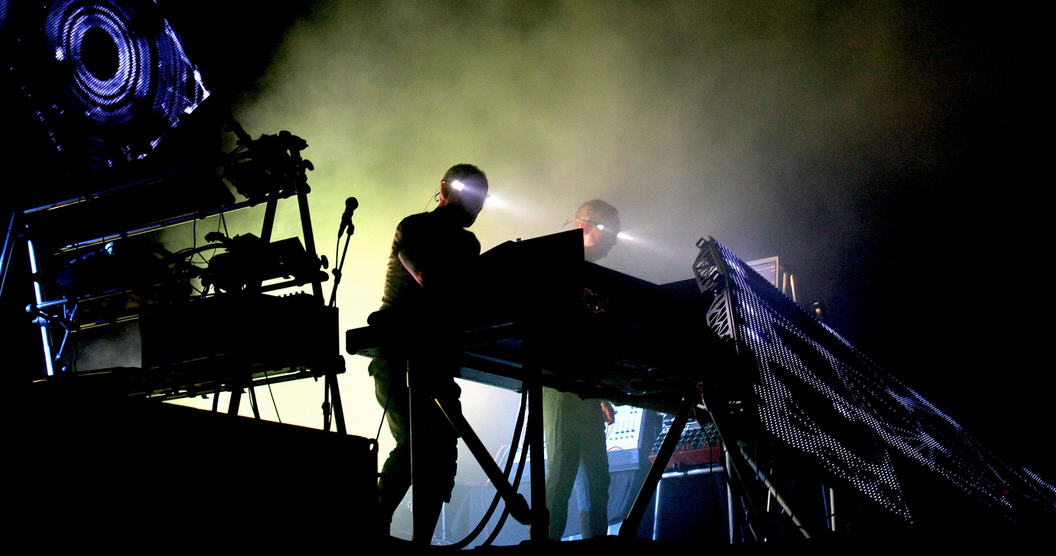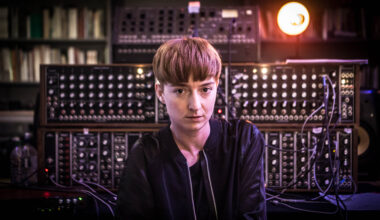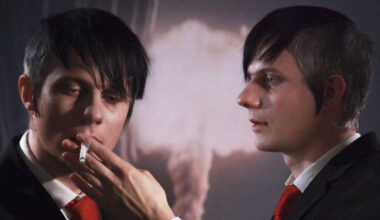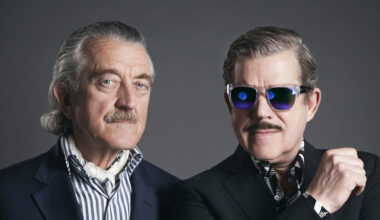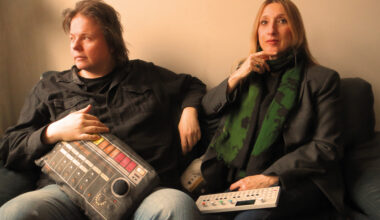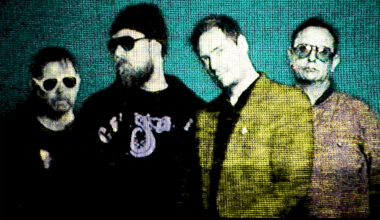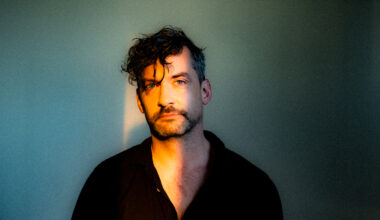After a four-year hiatus, the Hartnoll brothers are marking the return of Orbital with a string of summer festival dates. Paul and Phil talk family feuds, kicking ass live, and brand new recordings, plus their love of Kraftwerk and, erm, Morris dancing. You read it here first, folks
A glance at the dictionary confirms that “orbital” is a mathematical function that describes the wave-like behaviour of either one electron or a pair of electrons in an atom. Sometimes these electrons gain or lose energy and end up conflicting with one another.
Orbital is an aptly chosen name for Paul and Phil Hartnoll, then. Having created some of the most joyous and enduring records of the 1990s techno scene, Paul and Phil severed their musical union in 2013. It wasn’t an amicable split, either. So it’s good to hear that they have put aside their brotherly differences and are all set to tour and record together once again.
According to the official statement, Orbital’s 2017 reunion is more than just the revival of a musical partnership. It is “the end of a little-known, unhappy stand-off between two brothers, an estrangement that lovers of Orbital’s euphoric music might find surprising”. The plainly worded text confirms that the relationship between Paul and Phil “has often been tempestuous. Worse than musical differences, they’ve been through the personal clashes and resentments that only brothers can really understand”.
This will strike a chord for anyone with siblings. Estrangement in families is common. Reconciliation and resolution is regrettably never as easy as the movies make out. Indeed, when we hurt we often resort to anger and resentment. On a personal level, I frequently fought with my older brother, until cancer cruelly and rapidly stole him away within three months of diagnosis.
Speaking to Orbital over a suitably glitchy Skype call to their Brighton bunker studio from Gothenburg, where I’ve been working for a while, Paul and Phil acknowledge this.
“We are cool, otherwise we wouldn’t be here now,” explains Phil. “For me, the atmosphere in the studio is like when we first started, but now we have so much more experience between us. I don’t ever want to go back to not speaking to each other again. It was ridiculous and immature, like brothers get.”
“Actually, I’m the one who was being ridiculous and immature, because I wouldn’t speak to you,” admits Paul.
“I will never let it get to the stage of us not speaking to one another again, to get in that sort of lockdown. We appreciate what we’ve got! If we’d carried on as we were, we’d have been like Joffrey on the Iron Throne, we’d have been like those kind of pampered people who expect everything. You take it away and you miss it. When we forge the alliance that is Orbital, we feel privileged.”
At which point, Phil physically dives on top of Paul in a mock fight. Ah, brotherly love!
Amusingly, I first met Paul Hartnoll at a wedding reception. It was one of those rather bizarre moments that solved a minor puzzle that had clearly been troubling us both. We recognised each other as the lonely fellow in the crowd at countless London gigs, such as Severed Heads and the Butthole Surfers.
Over 30 years later, our paths have frequently crossed. The last time was at a Boiler Room recording for an Orbital live set in 2012, alongside PiL in a gloomy industrial lair in east London. Having seen Orbital play everywhere from the Royal Albert Hall in London to the Sonar Festival in Barcelona, sharing this beatific show with only around 35 other invited folks in a tiny room was majestic. It was a fantastic experience for the Hartnolls too.
“For a moment, I lost Phil, as he was spinning dancing with about eight people,” laughs Paul.
The pair’s ability to blend driving house beats with a techno precision, as repetitive loops spin around the room, seemingly effortlessly building to epic proportions, is their signature style. So why do they think this works so effectively?
“Because deep down we’ve got a big rooting in rock and punk,” says Paul. “We’d had our teenage musical education and then we got into electro and dance music, and these two things coalesced and without us really realising it. We found that tracks worked for us when they had big, simple riffs, like rock records. I don’t like Dire Straits, but when I hear ‘Money For Nothing’ I think to myself, ‘That’s a bloody great riff, I wish that was one of mine!’. It’s the simplicity. I noticed that when we played Glastonbury for the first time. No one knew our stuff, yet they all took to it straight away. They responded as if they knew it anyhow… and that’s the familiarity of a riff. You keep going at it and they get into it straight away.”
Orbital’s return to playing gigs this year has given them an opportunity to reflect on the value of a live performance, especially in relation to other electronic acts.
“I’ve been watching people get safer and safer in electronic live performances recently,” Paul explains. “And we seem to be getting looser and looser, but I wouldn’t have it any other way. To be on a platform in front of 5,000 Spaniards at the WAM Festival in Murcia in May was such a great opportunity to experiment.”
And the reunited Hartnolls seem to be taking more risks than ever.
“We’ve added a new track, from a demo that Paul has been working on, and it’s still not yet a fully-rounded track, but playing it out live helps us to find an arrangement before we go on to record it,” says Phil enthusiastically.
Music is a force that is able to transcend language, culture, geography and time, regardless of the background of audiences. Since they recorded ‘Chime’ on their father’s cassette deck in 1989, Orbital have become increasingly skilled at constructing tracks that simply work. They work in a tiny basement and they work in a festival environment. But the brothers measure the success of this modestly.
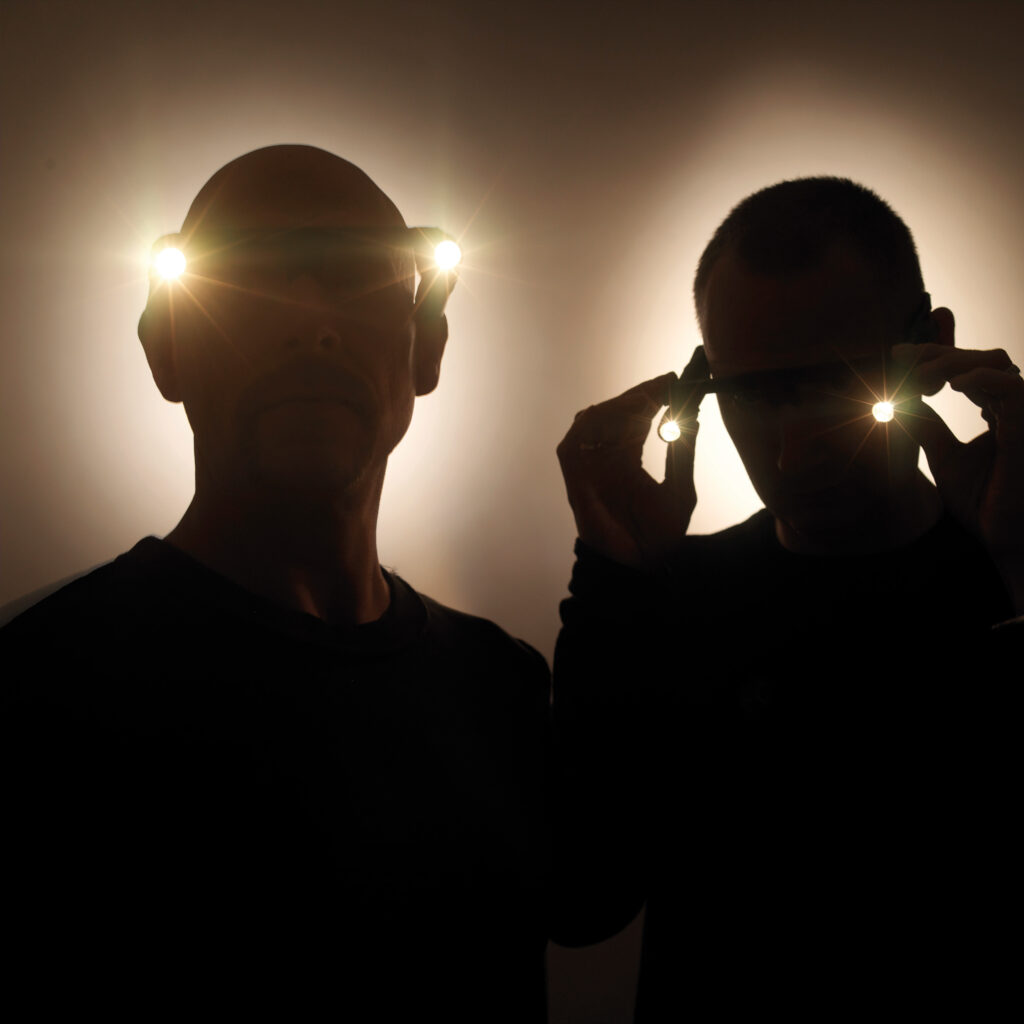
“I lose myself in a filter or an envelope when I’m playing,” Paul explains. “I just go off on one and close my eyes and enjoy it. Then I peep out after a while and check, ‘Yeah, they’re still dancing’. We’ve done a bit of recording recently too… and we got a little single out of it.”
That “little single” was a hypnotic tune called ‘Kinetic 2017’, released as a download in February, which in itself offers a curious walk through time. Many listeners will remember the riff from Golden Girls’ ‘Kinetic’ back in 1992. At the time, the Frank De Wulf remix of the track literally tore the roof off clubs. I know because I was there. But for even more pop quiz points, it’s worth noting that Paul Hartnoll was himself one of those fresh-faced Golden Girls.
His partner on the original record was Mike Hazel, who went on to form the Kudos label and distribution company, which has been responsible for getting lots of the music we’ve known and loved over the last 25 years out to the shops.
So if the Hartnolls are back playing live shows and are putting out music, it naturally raises the question of a new Orbital album to accompany the gigs. Tightening up the thumbscrews, I try to draw out some information on this.
“We are just about to announce some stuff,” Paul says, somewhat cagily. “We have to decide what’s the best track to come back with after four years, but once we’ve done that we can release it, like in the olden days. Then again, in those days you had to wait three months for the record company to put it out.”
‘Yeah, but at least we used to get paid,” deadpans Phil.
“We’ve had lots of those modern conversations, you know, ‘Albums don’t exist anymore, how about a load of EPs?’,” continues Paul. “But then we look at each other and realise that we both just like albums. There are some things you can’t change. I like albums and I want to work in that format. It’s the canvas size that works for us. I particularly like the 45-minute album, like the short, nippy Kraftwerk albums, the ones we’ve grown up with.”
I point out that it was 36 years ago, almost to the day, that Kraftwerk’s ‘Computer World’ album was first released, so forming the holy trinity alongside ‘Trans-Europe Express’ and ‘The Man-Machine’.
“I guess that’s everybody’s favourite trio,” Paul confidently states.
It turns out that ‘Computer World’ was Paul Hartnoll’s first Kraftwerk purchase. And now Orbital have covered ‘Numbers’ from ‘Computer World’ for an exclusive seven-inch single for Electronic Sound. Why ‘Numbers’?
“Because it was the only one I could sing for a start,” Paul says with much laughter. “You don’t want to do an instrumental of a Kraftwerk song, so you have to pick one you can do. And if you are going to do a cover version, you’ve got to have a good reason to do it. I thought of ‘Numbers’ straight away. It’s the track that turned me around. When I bought ‘Computer World’, I thought it was a bit cold and stark and I was a bit disappointed by it. I was only 12 or 13 at the time. But then ‘Numbers’ came on and it was amazing, it went beyond chilly to almost frozen, and I’ve always had a soft spot for it. The drums are some of my favourite electronic drums, so I thought, ‘Let’s do it with real drum sounds’. With the numbers, I changed them from these cold electronic things by finding real world alternatives that resonate with me.”
Trying to identify the various samples that make up the counting on Orbital’s version of the track is quite a challenge. Rather dismally, I could only pick out the numbers stations. For those not familiar with them, numbers stations are a cult within themselves and well worth exploring online. Transmitted all day and night on shortwave radio bands, the mysterious and spooky automated voices, seemingly randomly counting in all manner of languages, have been broadcast since the First World War. I first heard them by chance as a young teenager while scanning across the wavebands. To this day, there is no absolute confirmation to their origin, but it’s likely to be foreign intelligence agencies communicating out in the field.
Anyway, back to decrypting ‘Numbers’…
“I sampled the opening ‘1-2-3-4!’ off an X-Ray Spex record to make it all a bit punk rock,” confesses Paul. “There’s also the shipping news, the guy with the soft posh Jamaican accent on Radio 4, who has such a deep, wonderful voice. I cut all the numbers out from the samples of him, then I found this Spiritualized thing and realised that his voice and the female vocalist went together beautifully.”
This witty collage of samples is redolent of the VW Golf advert that Paul composed some years ago, using samples taken from the car itself. I’d recommend googling it if you’ve not heard it. It’s also a reminder of how Paul recorded his own album under the name 8:58 during the Orbital hibernation period, as well as film and TV soundtracks such as ‘American Ultra’ and ‘Peaky Blinders’. Phil, meanwhile, kept his feet firmly on the dancefloor.
“I’ve been out there DJing quite a lot, which I love,” says Phil. “It’s a different beast and it keeps my hand in dance music. I did an interesting project with American street artist Shepard Fairey and his group Nøise too. I was on a remix EP with Moby and Crystal Method, but the record took ages to come out because Shepard was a naughty boy in Chicago and graffitied where he shouldn’t have done, so the whole project was delayed for two years.”
The idea of going solo didn’t appeal much to either brother, though.
“There are times when I love working alone, but generally speaking I’m a social person,” says Paul. “When I’m here on my own, I think to myself, ‘I don’t want to end up sitting in a white box, just me and a computer. I don’t want that as my day job. That’s not what I signed up for in the first place’.”
Given the frequent ups and downs in the music business, I’m curious to know how Paul and Phil Hartnoll feel about the industry now.
“Things come and go,” says Paul. “There’s that showbiz phrase that I love, ‘Be good to people on the way up because you’re only going to meet them on the way down’. It’s so true, especially when you’ve been doing it for 27 years. The amount of people I’ve seen going up and coming down… including ourselves.”
There isn’t the space here to delve into every part of my conversation with Paul and Phil, so you’ll have to only imagine the tales of flying dildos in Spain, the touring antics with Aphex Twin and Moby, and so much more. But let’s close with another revelation – Paul’s new fascination with Morris dancing, the often maligned English folk dance.
“I’ve always had an admiration for it,” he smiles. “I assumed you were born out of the woods as a Morris dancer, like a fairy nymph. Having said that, it’s steeped in folklore. I was having some beers with a friend and we dared each other to try it. It’s been so much fun to do something that I thought I’d never be able to do. It’s like something that used to scare you in ‘Doctor Who’… and now all of a sudden I’m the scary Morris man!”
“I stick to Saturday night dancing in the clubs,” says Phil, looking across at his sibling disapprovingly.
Ah, brothers, eh?
For more see orbitalofficial.com
